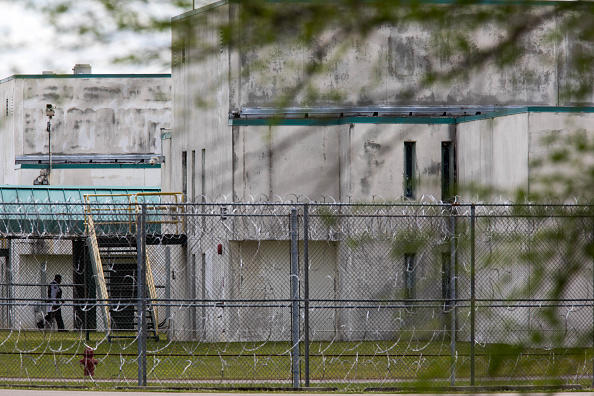When it comes to prisons, officers talk about all types of contraband — a category that’s massive and can encompass just about anything. Cell phones continue to come up as a cause for concern. Now, the government is testing a new method of control.
For five days, the Federal Bureau of Prisons conducted a test for micro-jamming contraband cell phones at the Broad River Correctional Institution in Columbia, South Carolina. Micro-jamming refers to disrupting phone signals in a very precise area.
The Department of Justice cites concerns around safety when it comes to contraband cell phones, like the shooting of Robert Johnson. In that case, a hit was ordered by an inmate who had access to a cell phone.
“While I served as United States Attorney of Maryland, my office prosecuted an inmate who used a smuggled cellphone to order the murder of an innocent witness,” Deputy Attorney General Rod Rosenstein said. “Contraband cellphones in correctional facilities pose a grave danger. We stand ready to help our state and local partners in their efforts to prevent inmates from using contraband cell phones in jails and prisons.”
The test was overseen by the National Telecommunications and Information Administration (NITA) and coordinate with the Federal Communications Commission (FCC). What’s important to note is that, currently, FCC laws only allow federal agencies to implement it.
However, last month, the Senate and House of Representatives introduced bills that would let state prisons jam signals, as reported by The Verge. That includes a bill proposed by Republican Sens. Tom Cotton and Lindsey Graham from South Carolina. In addition, the FCC has adopted new rules to “fight inmate use of contraband wireless devices.”
For advocates, the tests and proposed laws pose a lot of concerns, especially around the weakening of the federal brand. It’s easy to test something first on incarcerated people and then expand the use to everyone else.
These concerns have been around since 2010 when i09 reported on businesses who would have interest in jamming cell phones. Police have also messed with wireless networks to prevent people from protesting.
Last year, Ben Levitan, a North Carolina-based wireless communication expert, told Motherboard, “Allowing jamming technology is a very slippery slope, and once that door is opened we can never turn back. I’ve been in this business for 30 years. If someone is advocating for new technology they probably know someone who sells equipment or has a piece themselves.”
The American criminal justice system holds about 2.3 million people, according to a 2019 report from the Prison Policy Initiative. Jails and prisons alike continue to be critiqued as dehumanizing for a variety of reasons, including cutting people off from their families.

